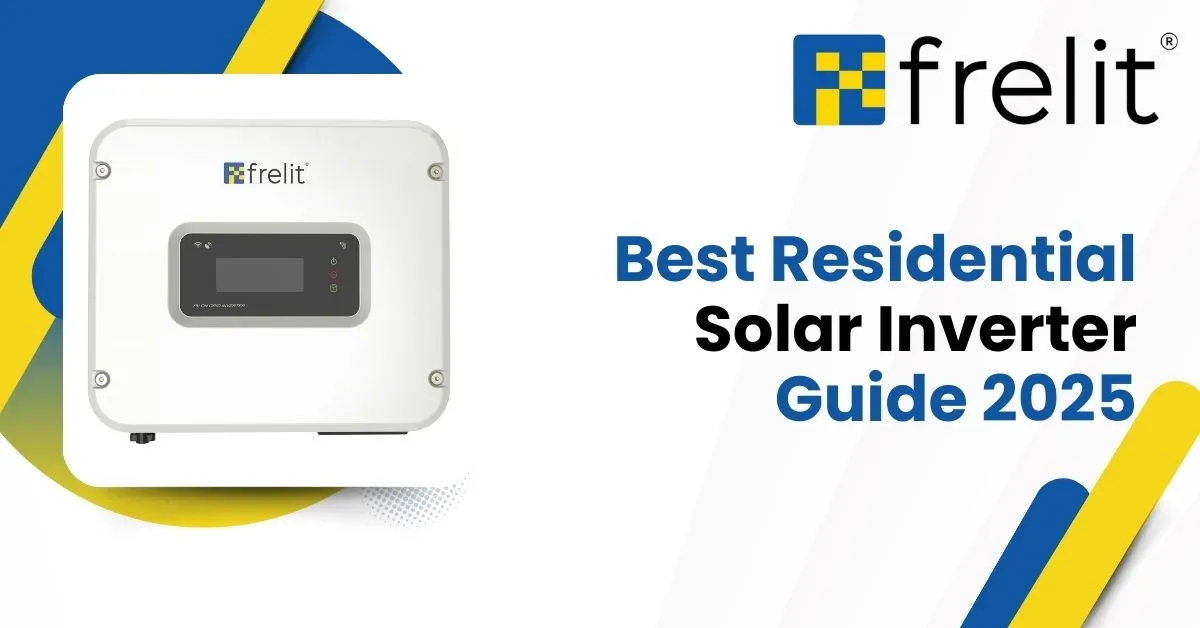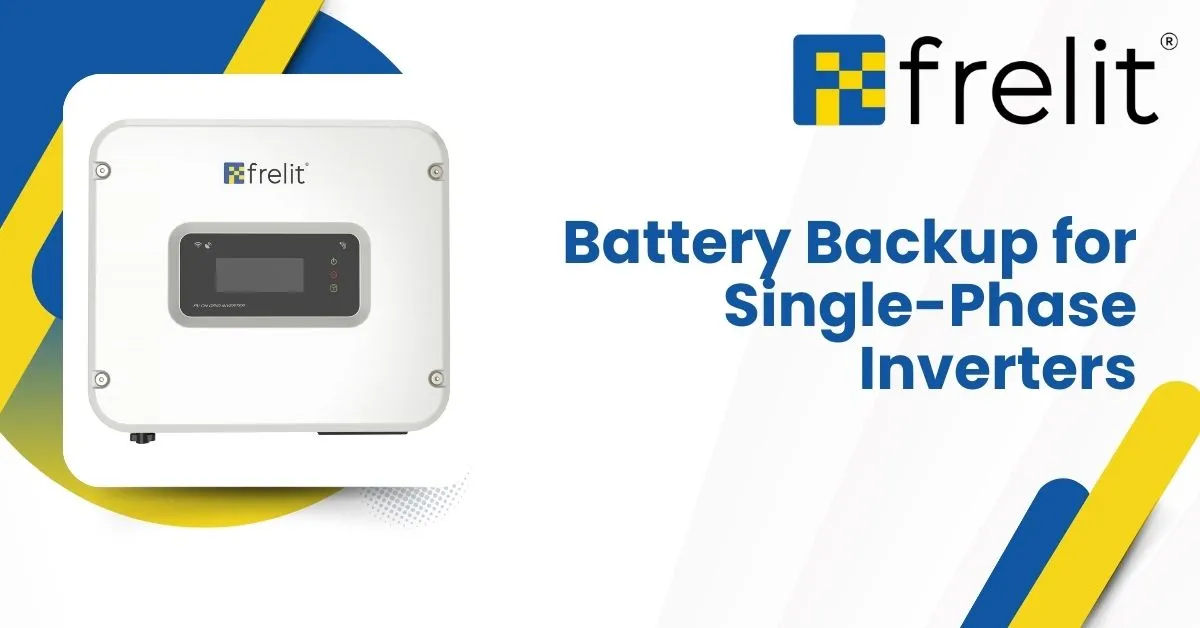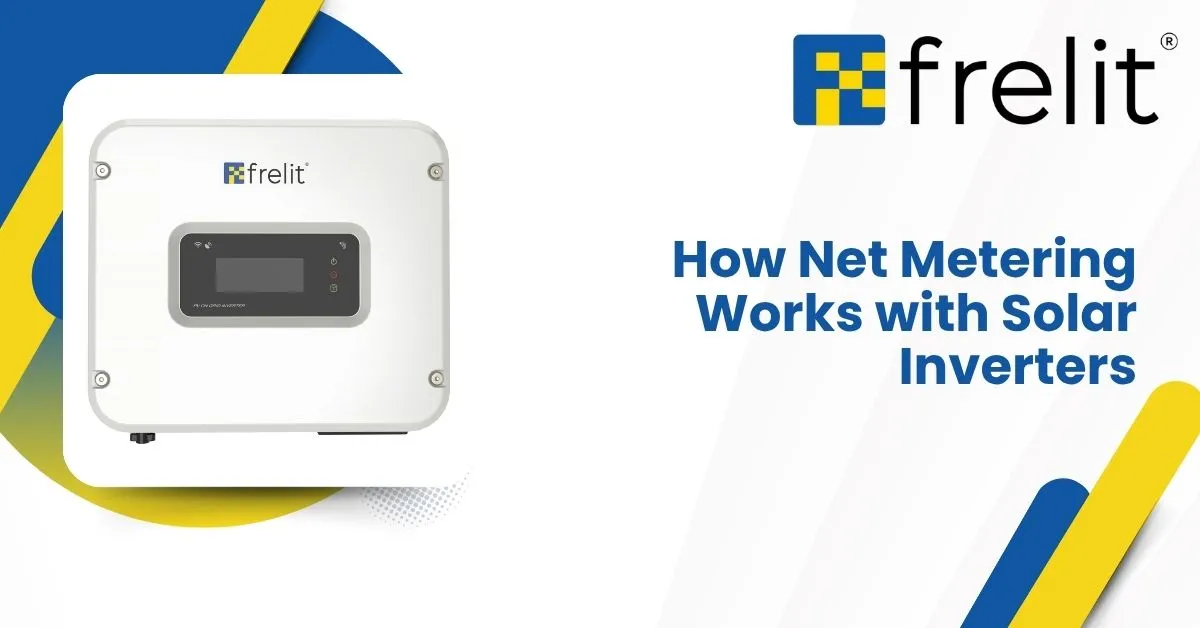
As more homeowners shift to solar energy in 2025, choosing the right solar inverter is more critical than ever. It’s the core device that converts your solar panels’ direct current (DC) into usable alternating current (AC) for your home.
In this guide, we’ll help you understand how to select the best residential solar inverter and introduce you to leading global brands, including Frelit, a rising name in the solar inverter market.
What is a Solar Inverter and Why Does It Matter?
A solar inverter performs the essential task of converting solar-generated DC electricity into AC power. Modern inverters also manage grid connection, energy optimization, battery charging (in hybrid models), and real-time performance monitoring.
Types of Residential Solar Inverters
1. String Inverters
- Cost-effective, used for simple rooftop systems
- All panels are connected in series; shading one panel may impact others
2. Microinverters
- Installed on each panel for independent performance
- Ideal for shaded or complex roof layouts
3. Hybrid Inverters
- Combine solar and battery inverter functionalities
- Great for future-proofing with energy storage
Top Residential Solar Inverter Brands in 2025
1. Frelit Inverters
Website: frelitenergy.com
Product Range: Single-phase and three-phase on-grid inverters
Best For: Homeowners seeking high-efficiency, affordable, and scalable inverter options
Notable Features:
- High conversion efficiency
- WiFi/GPRS monitoring
- Smart grid compliance
- Compact design and user-friendly interface
Frelit’s Three Phase On-Grid Inverter Series is particularly suitable for larger residential systems and villas:
Explore Single-Phase Inverters
Explore 3-Phase Inverters
2. SolarEdge
Specialty: Optimized string inverters
3. Enphase Energy
Specialty: Microinverters with panel-level control
4. SMA Solar Technology
Specialty: German-engineered string and hybrid inverters
5. Huawei FusionSolar
Specialty: Smart hybrid inverters with AI management
6. Fronius
Specialty: Robust hybrid systems with excellent support
Frelit Inverters: Why They’re a Great Choice in 2025
Frelit inverters are gaining popularity for their:
- Affordability without compromising performance
- Real-time monitoring through WiFi and mobile apps
- Compatibility with smart meters and net metering programs
- Reliability for both residential and light commercial setups
If you’re looking for a future-proof, grid-tied inverter solution, Frelit offers one of the best value propositions in 2025.
Ready to power your home with the best solar inverter? Explore top-rated options like Frelit and make the smart switch—contact us today for expert guidance!
Residential Solar Inverter Pricing
| Type | Estimated Price (USD) |
|---|---|
| String Inverter | $1,000 – $2,000 |
| Microinverter | $1,500 – $3,000 |
| Hybrid Inverter | $2,000 – $4,000 |
Frequently Asked Questions
Q1. What is the best residential solar inverter in 2025?
The best residential solar inverter in 2025 depends on your energy needs, budget, and system size. Popular choices include Frelit, SolarEdge, Enphase, and Fronius. Frelit inverters are known for their high efficiency, affordability, and reliable performance in both single-phase and three-phase configurations.
Q2. Are Frelit inverters good for home solar systems?
Yes, Frelit inverters are well-suited for home solar installations. They offer on-grid inverters with excellent conversion efficiency, compact designs, and support for real-time performance monitoring via WiFi. Their range includes both single-phase and three-phase options, ideal for residential and small commercial applications.
Q3. What type of inverter is best for residential use—string, micro, or hybrid?
- String inverters are budget-friendly and work best on unshaded roofs.
- Microinverters are ideal for roofs with multiple orientations or shading issues.
- Hybrid inverters are great for homeowners planning to install battery storage.
Frelit primarily offers string inverters, suitable for most residential rooftops.
Q4. What size inverter do I need for a 5kW solar system?
For a 5kW solar panel system, a 5kW inverter is generally recommended. However, depending on inverter efficiency and panel configuration, a slightly smaller or larger inverter (4.5kW–5.5kW) might be suitable. Brands like Frelit offer models tailored for such residential sizes.
Q5. How long do residential solar inverters last?
Most residential solar inverters last between 10 to 15 years. Frelit inverters come with a manufacturer warranty and are built using durable components that support long-term grid-tied operation.
Q6. Are Frelit inverters compatible with battery storage systems?
Frelit primarily offers on-grid string inverters. While they do not currently provide hybrid inverters with built-in battery support, you can consult with your installer about integrating batteries with external hybrid solutions.
Q7. How much does a good residential inverter cost in 2025?
The cost of a quality inverter ranges from $1,000 to $4,000, depending on type and features. Frelit inverters are priced competitively, making them an affordable option without sacrificing quality.
Conclusion
Choosing the right solar inverter in 2025 can maximize your energy yield, reduce maintenance headaches, and prepare your home for future tech upgrades like battery storage and EV integration.
If you’re looking for a cost-effective, powerful, and user-friendly inverter, Frelit stands out among the top global brands with its expanding product line and smart monitoring features.



